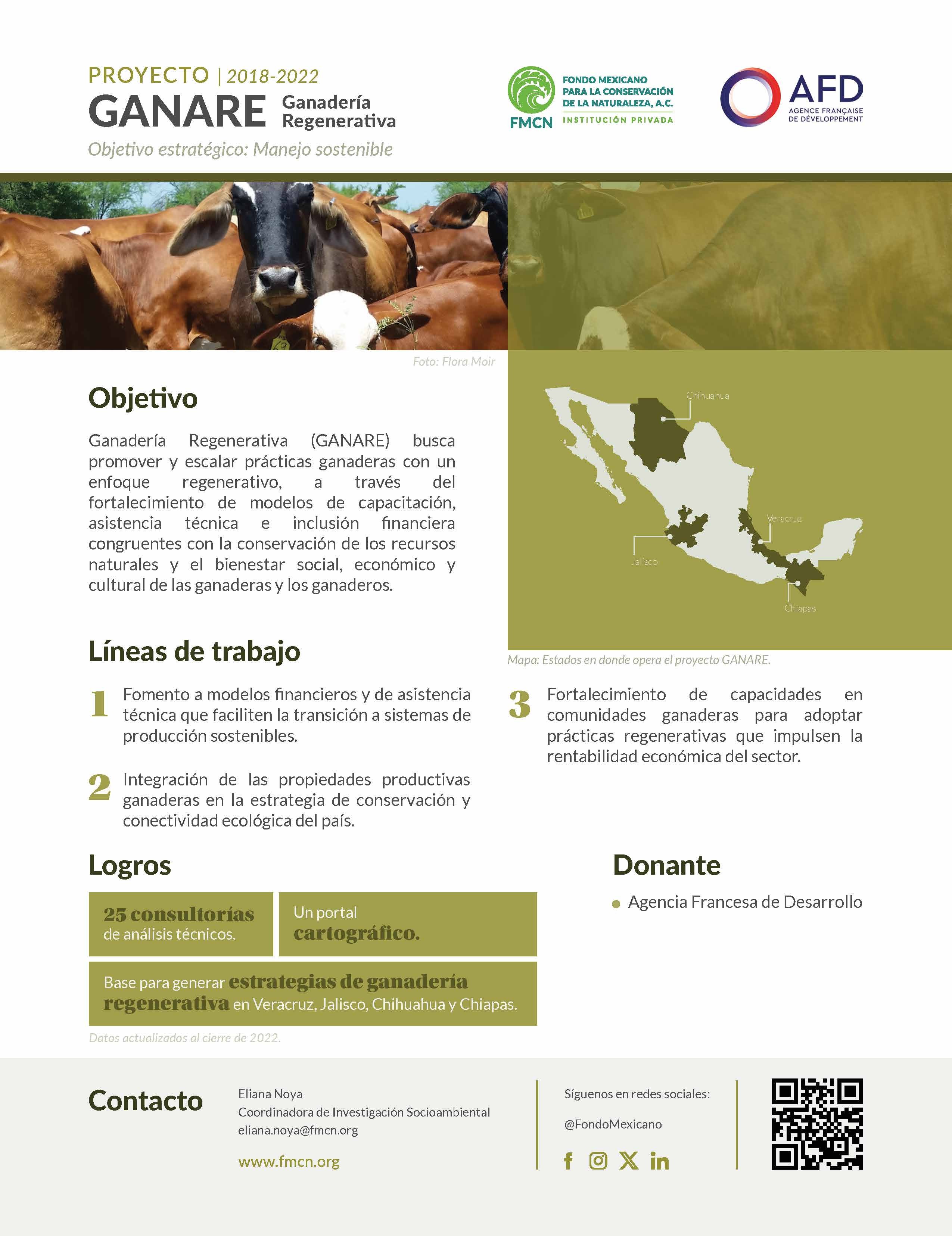GANARE: Regenerative Ranching
Regenerative ranching as a tool for biodiversity conservation
The Project
Regenerative Ranching (GANARE, acronym in Spanish) seeks to promote and scale up livestock farming practices with a regenerative approach by strengthening training, technical assistance, and financial inclusion models that are consistent with the conservation of natural resources and the social, economic, and cultural well-being of livestock farmers.
Context
Climate change and food production are two main global challenges countries face. In rural areas of Mexico, livestock farmers represent one of the most vulnerable sectors, given that their activities are undoubtedly climate-dependent. Climate change adaptation and mitigation measures along value chains are essential for producers’ well-being and ensuring the production of sustainable, sufficient, and good-quality food.
Regenerative ranching seeks to recover soil fertility and restore nutrient, energy, and water cycles. It is based on planned rotational grazing practices, locally adapted livestock genetics, wildlife habitat restoration, and erosion prevention. Together, these practices result in resilient and productive ecosystems that sustain their use and conserve their biodiversity while operating as carbon sinks.
The GANARE project focuses on four important cattle-raising states: Chiapas, Chihuahua, Jalisco, and Veracruz, with a vision of scaling it up to a national level.
The lines of work that guide GANARE's actions are:
- Promotion of financial and technical assistance models that facilitate the transition to sustainable production systems.
- Integration of livestock production properties into the country's conservation and ecological connectivity strategy.
- Capacity building in livestock farming communities to adopt regenerative practices that boost the sector's economic profitability.
Ranching practices with a regenerative approach
Explore our publications
Achievements
GANARE includes the development of knowledge products through 25 consultancies between December 2018 and June 2022, highlighting:
- Four socio-environmental and economic diagnostics on livestock activity.
- Three methodologies for biodiversity monitoring in livestock areas.
- A methodology for soil monitoring in livestock systems.
- A cartographic database and a visualization portal.
- An economic analysis of the profitability of conventional and sustainable production systems.
- Characterization of the value chain.
- An Environmental, Social, and Gender Management Framework to mitigate the risks and impacts of livestock practices.
- Two diagnoses of technical and business capacities.
- A perception study on farmers' motivations for adopting sustainable practices.
In the second half of 2022, with the participation of the French Development Agency, GANARE's closing event was held to present a synthesis of some of the project's results. The event encouraged the exchange of ideas among the attendees to identify future opportunities for collaboration.
